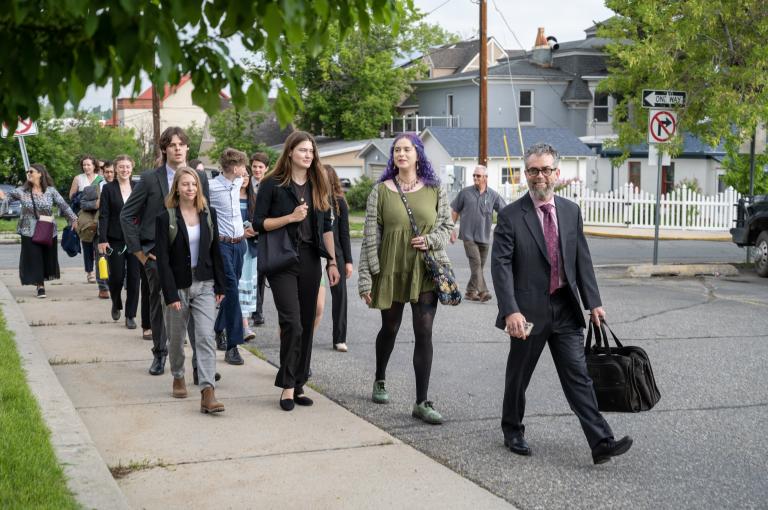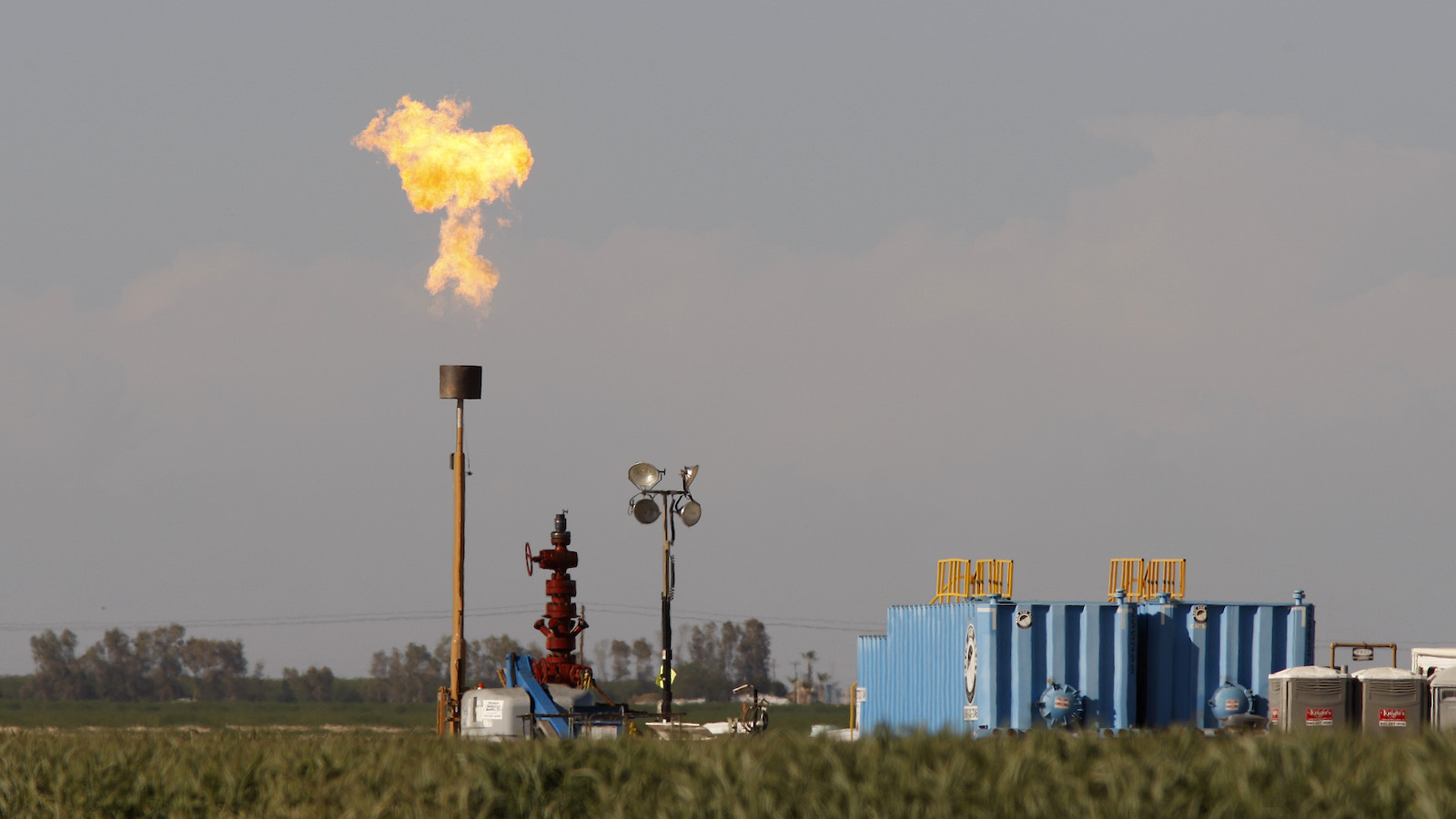In 2019, Southern California Gas Company painted a rosy picture of the natural gas it was selling to its customers. On its website, in online ads, and on giveaway swag like hats and T-shirts, the utility described natural gas as “affordable, clean, and renewable.”
Now, SoCalGas will likely pay tens of thousands of dollars in penalties over those claims, according to a settlement agreement announced this week by California Attorney General Rob Bonta.
“SoCalGas should have known better than to broadcast unqualified claims suggesting that all natural gas is ‘renewable,’” Bonta said in a statement.
Most natural gas — including the vast majority of the gas that SoCalGas sells to its customers — is a type of fossil fuel composed primarily of methane. Burning it releases planet-warming carbon dioxide into the atmosphere. A similar fuel called biomethane, which can be harnessed from landfills and agricultural operations, is generally considered to be renewable, although some sources of biomethane present environmental justice concerns.
Renewable natural gas accounted for less than 0.2 percent of the U.S.’s total natural gas production last year, and less than 5 percent of the gas SoCalGas delivered to customers as of the end of 2022. At most, experts say renewable natural gas will only ever be able to displace 16 percent of current natural gas consumption.
SoCalGas’s statements “may have misled consumers into thinking that SoCalGas’s natural gas is superior to environmentally harmful fossil fuels,” read a complaint from the attorney general’s office, filed last week on behalf of California residents. The complaint also flagged marketing materials describing natural gas as “safe,” “clean,” and “good for the economy.”
In reality, natural gas may be even worse for the climate than other fuels, thanks to leaking methane throughout its supply chain. Methane, a greenhouse gas 84 to 86 times more potent than carbon dioxide over its first 20 years in the atmosphere, is constantly seeping into the atmosphere from natural gas pipelines, compressor stations, and other infrastructure. It’s also released through venting and flaring, which is when oil and gas extractors intentionally release unwanted fuel from their production sites.
According to an analysis from the environmental think tank RMI, a methane leakage rate as low as 0.2 percent can put natural gas’s climate impact on par with that of coal. Globally, experts estimate the methane leakage rate to be about 1.7 percent, although in some places it can be as high as 3.7 percent.
The proposed settlement, which is still pending court approval, would resolve allegations that SoCalGas violated California consumer protection laws. If approved, it would requireSoCalGas to pay $175,000 in penalties, half of which will be directed to a small grants program of the California Environmental Protection Agency. The utility would be prohibited from making “similar unqualified statements” that natural gas is renewable, and it would have to publish a “corrective statement” on its website clarifying that most of its portfolio is “comprised of nonrenewable natural gas derived from fossil fuels.”.
In response to Grist’s request for comment, SoCalGas said it was “committed to delivering increasingly renewable natural gas and other clean fuels to its customers.” A spokesperson noted that the utility aims to achieve net-zero greenhouse gas emissions “in our operations and delivery of energy” by 2045, including emissions from the fuel SoCalGas sells.
Activists, regulators, and policymakers in other jurisdictions have also recently sought to stop natural gas-related greenwashing. In Seattle earlier this year, for example, advocacy groups successfully lobbied the waste hauler WM to remove branding from its trucks saying they were “powered by renewable natural gas.” Lawmakers in Oregon have called for the state Department of Justice to investigate a regional utility’s claims about “renewable natural gas,” and in Washington, D.C., a first-of-its-kind lawsuit filed last year said it was “greenwashing” for the utility Washington Gas to call its natural gas “clean and efficient.”
Some experts and environmental groups are also leery of the term “natural gas” itself: The word “natural” is a misnomer that, according to RMI, “suggests its alignment with sustainability goals.” Many advocacy groups prefer to use the term “methane gas,” or “fossil gas.”
Nihal Shrinath, an associate attorney for the Sierra Club, said it was “encouraging” to see SoCalGas being held accountable. “There is a disturbing pattern coming to light,” he told Grist. “While SoCalGas faces fines for obvious greenwashing, it continues to mislead customers with greenwashing projects, by pushing ‘renewable’ natural gas and dubious hydrogen projects.”
The $175,000 fine, he added, “pales in comparison to the environmental and public health costs of burning and transporting gas, processes that are promoted by SoCalGas’s false advertising and propaganda.”
Editor’s note: Sierra Club is an advertiser with Grist. Advertisers have no role in Grist’s editorial decisions.




